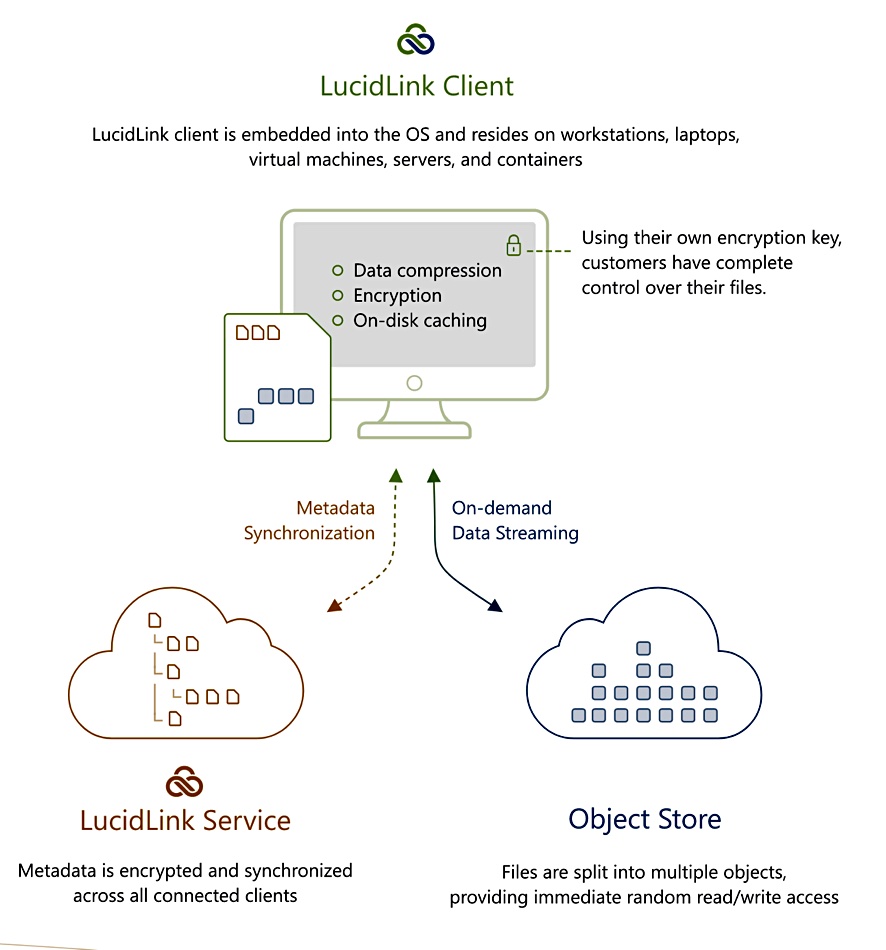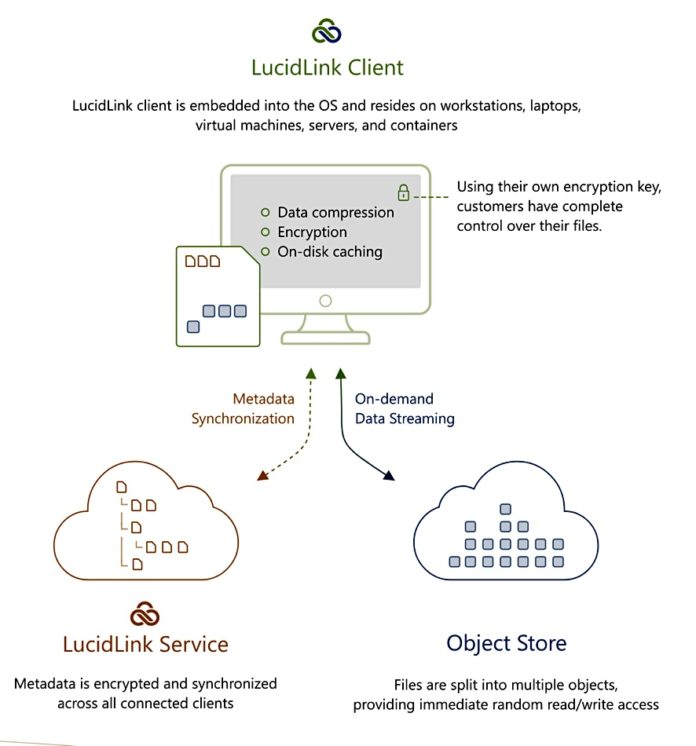LucidLink, whose FileSpaces software presents public cloud object storage as a local filer, has impressed venture capitalists enough to get a $12m A-round of funding.
The company was launched in 2016 and seed funding prior to this latest cash injection totalled $7.1m. Its Filespaces technology has a software agent, and provides on-premises metadata processing and a small cache area in the local storage. Applications make file requests which are sent to the public cloud object store and serviced from there using parallel links, compression, streaming and pre-fetching to give local access speed.
Conrad Chu, a partner at venture cap fund Headline, said in a statement: “We discovered Filespaces as a user and immediately recognised that there is nothing else like it out there. With incredible traction in the Media and Entertainment industry as well as Architecture, Engineering, and Construction, LucidLink is hitting it out of the park with this next-generation cloud file system.”

Adobe invested alongside Headline, as did Baseline Ventures and Bright Cap Ventures. Chu is joining LucidLink’s board.
LucidLInk co-founder and CEO Peter Thompson said in a statement: “Our partnership with Adobe presents a perfect opportunity to easily enable remote production teams with the entire suite of Adobe Creative Cloud products.”
Filespaces can be combined with an on-premises Cloudian HyperStore back-end platform. Local applications see Filespaces as a NAS mountpoint and translate their file access requests into S3 requests, feeding them to the Cloudian system. The point is that the Cloudian HyperStore system is generally more affordable than a NAS filer and, courtesy of Filespaces, provides equivalent access speed.
In February LucidLink announced a bundling of IBM Cloud Object Storage with Filespaces. Other supported object storage includes AWS S3, Azure Blob, Google Cloud Platform, MinIO, Nutanix Objects, Scality, Wasabi and Zadara.
The prospect is that multiple remote users and hybrid businesses with edge computing sites, connected like spokes to a public cloud hub, can all benefit from cheap and scalable public cloud storage while getting local filer access speeds by using Filespaces software to bridge the on-premise and cloud environments.
There are several other suppliers offering similar public cloud-to-edge data access and file collaboration, such as CTERA, Egnyte, InfiniteIO, Nasuni, and Panzura. They all share a basic public cloud-to-local site data access capability, implemented in their own way, while adding their own set of services on top.
Quantum will likely see LucidLink as a competitor in the entertainment and media industry, as Quantum’s StorNext file system also supports object storage back ends.








